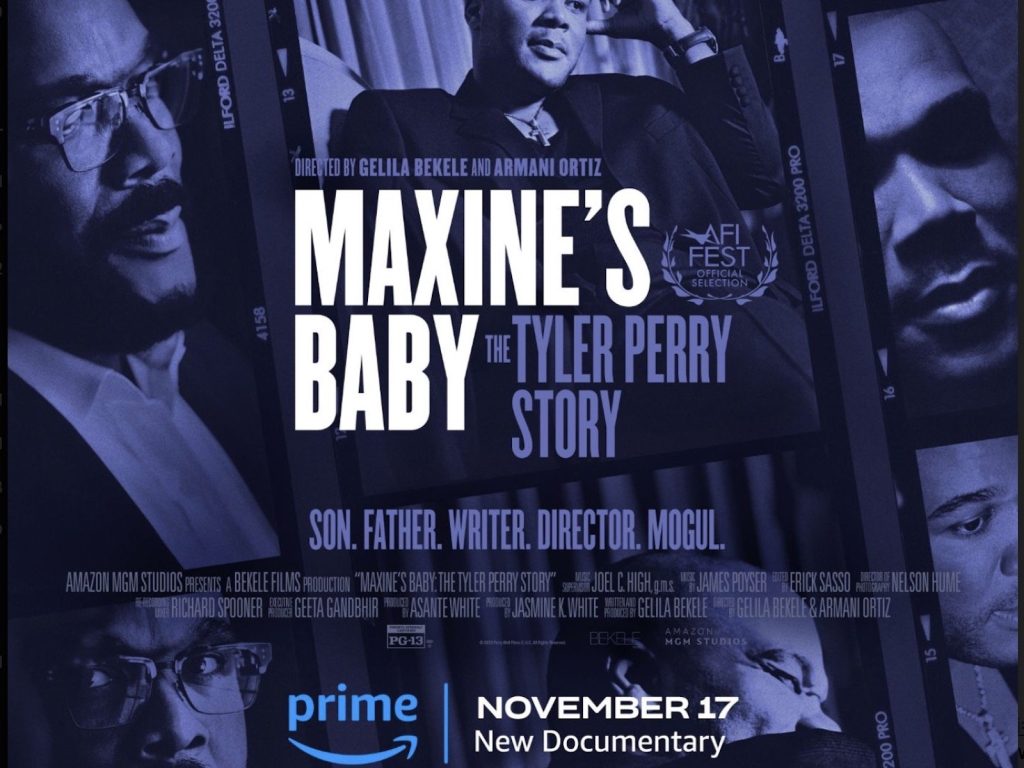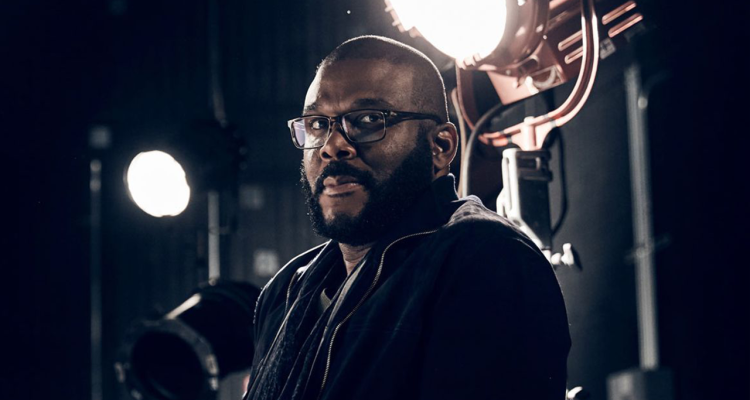Pioneering studio chief and prolific actor, filmmaker, and writer Tyler Perry is given the documentary treatment with Amazon MGM Studios Maxine’s Baby: The Tyler Perry Story. The film premiered at the TCL Chinese Theater on Friday night during AFI FEST to a rapturous audience eager to celebrate the visionary innovator.
The film is an intimate portrait of a man healing from childhood trauma as he traverses a harrowing road to the top of an industry that debated his rise to superstardom. Co-directed by Gelila Bekele and Armani Ortiz, Maxine’s Baby: The Tyler Perry Story gives audiences vérité-style unfettered access to Perry with illuminating interviews alongside archival footage of his early years in theater before chronicling the 2019 opening of his 330-acre studio in Atlanta.
Perry was not in attendance at the screening, but the audience was delighted to share space with Oprah Winfrey, who appears in the film to discuss her relationship with Perry through the years. American Film Institute CEO Bob Gazzale introduced the film, noting that Perry’s support of other artists was being returned that evening during screening.
“It is no secret that this town loves the idea of a maverick, but they don’t always love a maverick,” explained Gazzale. “A maverick shows you what you are not and shows you a different way. At AFI, we are committed to celebrating excellence and ensuring the next generation through education, and we love a maverick. Tonight, we’re here to support you, Tyler Perry.”
As the end credits rolled, the packed theater leaped to their feet for a standing ovation. The audience continued to cheer and holler as Angelique Jackson, senior entertainment writer at Variety, introduced co-directors Bekele and Ortiz for a post-screening Q&A.

The opening shot of the film features an anxious Perry, whom Ortiz affectionately nicknames TP, backstage during the opening of his studio as he prepares to address the crowd, which Ortiz marked as being a particularly difficult night to capture.
“It was always difficult to get TP to open up because he’s always in control,” shared Ortiz. “The event of the opening of his studio was the hardest thing we filmed out of the ten years, just for the simple fact that it was so massive and so grand, and everyone felt the weight of history for that one event.”
Alongside the difficulty of capturing the monumental event was sifting through all the archival and filmed footage to include in the film. Ortiz remarked that the first cut was five hours long, while Bekele explained, “With documentaries, you’re not in control until you’re in the editing room and figure out the puzzle that doesn’t make any sense. (His) story deserved the grace of time, and the small, quiet moments are important. It’s where it led us to the heart, which became Maxine.”
As the pulsating heart of the documentary, Maxine appears on screen in archival footage. As Perry recollects growing up in his abusive home, the mention of Maxine brings out the most tender and raw side of Perry in recalling his relationship with his mother. “Maxine is deep in his soul,” noted Ortiz. “We had to ask for forgiveness instead of permission to find that footage, so we stole it.”
“I don’t think he knew it existed,” added Bekele. “To hear her voice and see her, and to hear her story from her perspective, I mean, my experience in the past, I haven’t been lucky to have this past-present connection, so it was unreal.”
In the film’s more intimate moments, Perry talks about his childhood trauma, and both Ortiz and Bekele were careful in how these moments are portrayed both on-screen and while interviewing Perry for the film. “I think any sort of human conversation, vulnerability really, depends on the landing pad. When people feel comfortable and safe, they can open up,” explained Bekele. “Although I’ve had a front-row seat for many years, we didn’t want to take it lightly that when speaking about trauma, you’re reliving the story, and it’s not easy, and we wanted to make sure TP was okay.”
Perry is perhaps most recognized for playing the sun-dress-wearing and gospel-quoting Madea, whom he first played on the Chitlin’ circuit for hundreds of shows to predominantly black audiences. Maxine’s Baby: The Tyler Perry Story contextualizes the rise of his career against the impact of criticism from people who believe he perpetuates negative imagery of Black people in his films.
“Art is so personal and emotional in how it connects and resonates with us, and it’s important to debate,” shared Bekele. “I think about how people will be able to watch this film across the world and the kind of reach we have by partnering with Amazon and MGM. Film and art are important, and how you relate to them is personal.”
It’s why the filmmakers took great care with how they captured and pieced the film together. “I remember I was in New York with TP,” started Ortiz. “There’s a little clip up where Tyler’s son is a baby, 6 or 7 months old, and it gave me the gravity of accountability and responsibility to be like, okay, this is a man’s life. He’s putting me in here because he trusts me. I have to make sure that I take this very seriously.”


